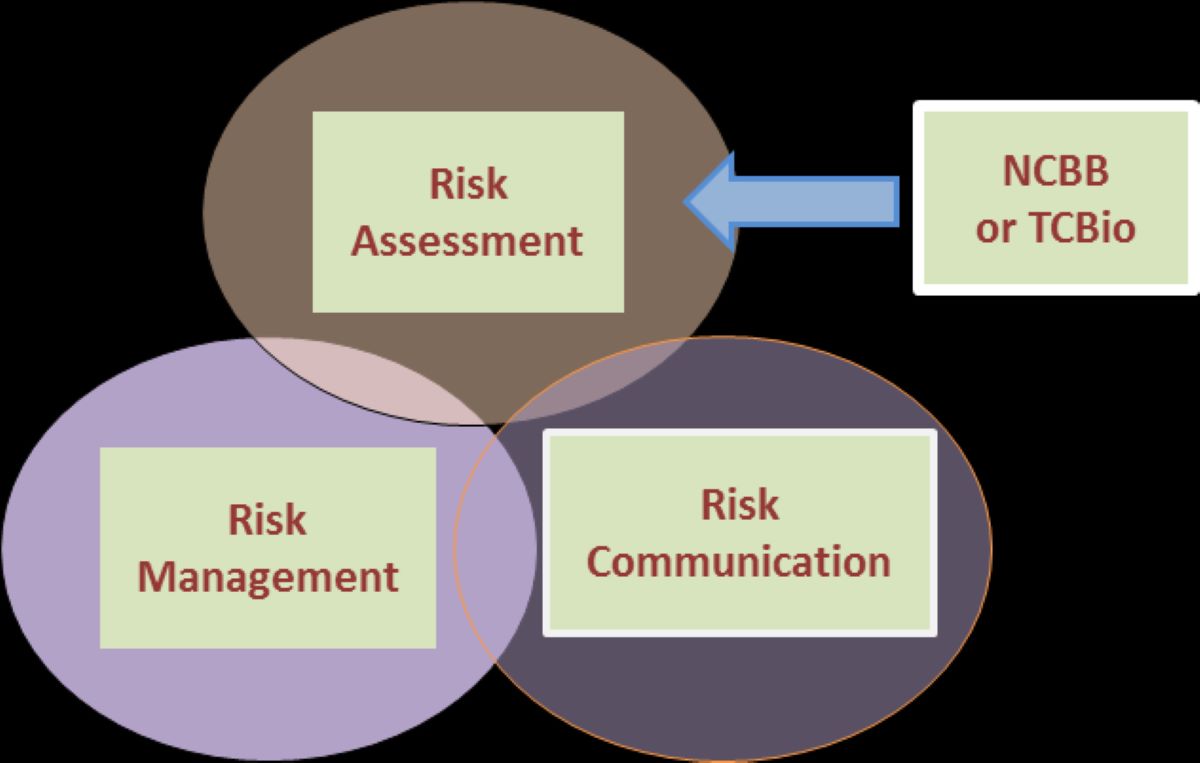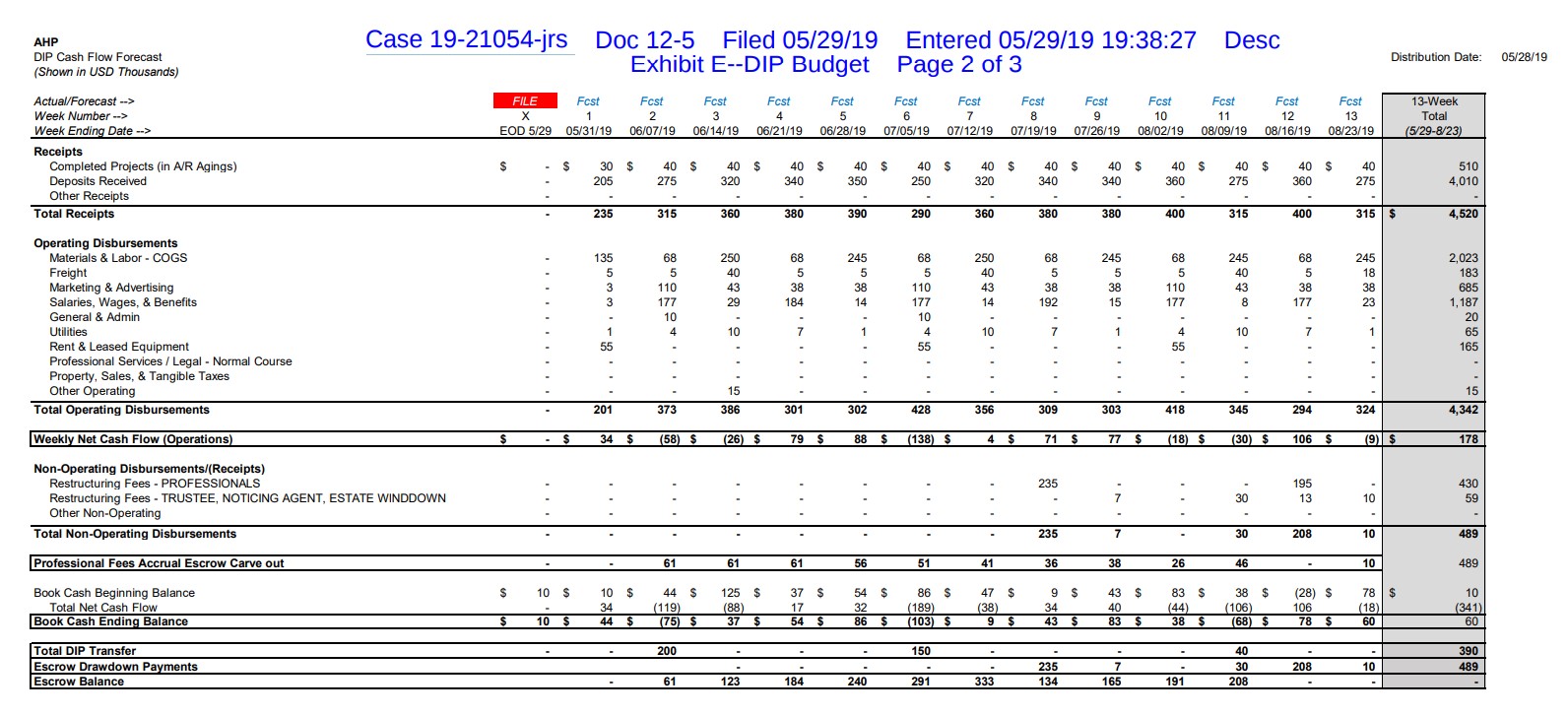Home>Finance>What Is A Third Party Administrator For Health Insurance?


Finance
What Is A Third Party Administrator For Health Insurance?
Published: October 30, 2023
Learn about the role and benefits of a third-party administrator for health insurance. Improve your financial goals with their expert support and guidance.
(Many of the links in this article redirect to a specific reviewed product. Your purchase of these products through affiliate links helps to generate commission for LiveWell, at no extra cost. Learn more)
Table of Contents
Introduction
When it comes to managing healthcare benefits, there are several entities involved in the process. One such entity is a Third Party Administrator (TPA). TPAs play a crucial role in the healthcare industry, particularly in the realm of health insurance.
A Third Party Administrator, also known as a TPA, is an organization that acts as an intermediary between the insurer and the insured individuals or groups. TPAs specialize in handling the administrative tasks and processes associated with managing health insurance policies.
TPAs are responsible for a wide range of tasks, including premium collection, claims processing, enrollment and eligibility management, and customer service. They work closely with insurance companies, healthcare providers, and policyholders to ensure the smooth functioning of health insurance plans.
The role of a TPA is essential in simplifying and streamlining the healthcare benefits process. By taking charge of the administrative complexities, TPAs allow insurers and policyholders to focus on their respective roles without getting bogged down by paperwork, claims processing, and other administrative burdens.
In recent years, TPAs have gained popularity and have become an integral part of the healthcare ecosystem. Their expertise and specialized services help ensure the effective and efficient administration of health insurance plans.
Throughout this article, we will delve deeper into the world of TPAs, exploring their roles, responsibilities, advantages, and limitations. We will also highlight the key differences between TPAs and insurance companies to provide a comprehensive understanding of the unique role that TPAs play in the healthcare industry.
Definition of a Third Party Administrator (TPA)
A Third Party Administrator (TPA) is a specialized organization that handles the administrative tasks and processes related to managing health insurance policies. TPAs act as intermediaries between insurers, healthcare providers, and policyholders, playing a crucial role in facilitating the smooth functioning of health insurance plans.
TPAs are responsible for a variety of functions, including premium collection, claims processing, enrollment and eligibility management, policy administration, and customer service. They serve as a centralized point of contact for policyholders, addressing their queries, resolving issues, and ensuring a positive customer experience.
One of the primary purposes of a TPA is to streamline and simplify the complex administrative processes associated with health insurance. By outsourcing these tasks to a TPA, insurance companies can focus on their core functions, such as underwriting, risk management, and product development.
TPAs operate independently of insurance companies and provide their services under contractual agreements. They possess the expertise and knowledge required to navigate the intricacies of health insurance, including compliance with regulatory requirements and industry best practices.
It’s important to note that TPAs are different from insurance brokers or agents. While brokers assist individuals and businesses in finding the right insurance coverage, TPAs primarily focus on managing the administrative aspects of health insurance policies.
Overall, the role of a Third Party Administrator is to ensure efficient administration, timely claims processing, and superior customer service within the health insurance ecosystem. Their expertise and specialized services enable insurers to delegate administrative tasks while providing policyholders with the support they need for a seamless healthcare benefits experience.
Role and Responsibilities of a TPA in Health Insurance
A Third Party Administrator (TPA) plays a pivotal role in the realm of health insurance, serving as a liaison between insurers, healthcare providers, and policyholders. TPAs have a diverse range of responsibilities, each essential to the effective management of health insurance plans. Let’s explore some of the key roles and responsibilities of TPAs in the context of health insurance.
Claims Processing: One of the primary responsibilities of a TPA is to handle the processing of insurance claims. This includes verifying the accuracy of the claims, validating the policy coverage, and assessing the eligibility of the claimant. TPAs ensure that the claims process is efficient and transparent, providing timely reimbursements to policyholders and managing any disputes or issues that may arise.
Enrollment and Eligibility Management: TPAs are entrusted with managing the enrollment and eligibility of policyholders in health insurance plans. This involves verifying the eligibility criteria, processing enrollment applications, and ensuring that policyholders have access to the benefits and coverage outlined in their insurance policies.
Premium Collection: TPAs are responsible for the collection and management of premium payments from policyholders. This includes processing premium payments, maintaining accurate records, and providing policyholders with necessary information and documentation related to their premiums.
Policy Administration: TPAs handle the administrative aspects of health insurance policies, including policy documentation, record-keeping, and policy updates. They ensure that policyholders receive the necessary information and documents related to their insurance policies and assist them in understanding the terms, conditions, and coverage of their policies.
Customer Service: TPAs act as the primary point of contact for policyholders, addressing their queries, concerns, and issues related to their health insurance plans. They provide prompt and efficient customer service, offering guidance and support to policyholders throughout their insurance journey.
Provider Network Management: TPAs maintain relationships with healthcare providers, including hospitals, clinics, and healthcare professionals. They negotiate provider contracts, manage provider networks, and ensure that policyholders have access to quality healthcare services within the network.
Compliance and Regulatory Requirements: TPAs keep abreast of the evolving regulatory landscape in the health insurance industry. They ensure compliance with relevant laws, regulations, and industry standards, safeguarding the interests of policyholders and insurers alike.
Overall, the role of a TPA in health insurance is multifaceted, encompassing a range of responsibilities aimed at facilitating a seamless and efficient healthcare benefits experience for policyholders. Their expertise and specialized services play a crucial role in overcoming administrative challenges, allowing insurers and policyholders to focus on their core functions within the healthcare ecosystem.
Services Provided by TPAs
Third Party Administrators (TPAs) offer a wide range of services that are vital to the effective management of health insurance plans. These services are designed to streamline administrative processes, enhance customer experience, and ensure the smooth functioning of healthcare benefits. Let’s explore some of the key services provided by TPAs in the context of health insurance.
Claims Processing: TPAs specialize in claims processing, which involves verifying the accuracy of claims, assessing eligibility, and determining the coverage under the policy. They ensure that claims are processed efficiently and accurately, minimizing delays and providing prompt reimbursements to policyholders.
Customer Service: TPAs offer comprehensive customer service, acting as the primary point of contact for policyholders. They assist policyholders with their queries, provide guidance on policy coverage, enrollment, and claims, and resolve any issues or concerns that may arise. TPAs aim to deliver a superior customer experience, ensuring that policyholders are satisfied with their health insurance plans.
Enrollment and Eligibility Management: TPAs are responsible for managing the enrollment and eligibility of policyholders. They process enrollment applications, verify eligibility criteria, and ensure that policyholders have access to the benefits and coverage outlined in their insurance policies.
Provider Network Management: TPAs maintain relationships with healthcare providers, including hospitals, clinics, and healthcare professionals. They negotiate contracts with providers, establish and manage provider networks, and ensure that policyholders have access to a wide range of quality healthcare services within the network.
Premium Collection and Billing: TPAs handle the collection and management of premium payments from policyholders. They process premium payments, maintain accurate records, and provide policyholders with the necessary information and documentation related to their premiums.
Policy Administration: TPAs manage the administrative aspects of health insurance policies. They maintain policy documents, update policy information as required, and ensure that policyholders receive the necessary information and documentation related to their insurance policies.
Claims Analytics and Reporting: TPAs utilize data analytics to track and analyze claims patterns, identify fraudulent activities, and provide valuable insights to insurers. They generate reports and analytics that help insurers make informed decisions regarding claims management and policy enhancements.
Compliance and Regulatory Support: TPAs stay up to date with the ever-changing regulatory landscape of the health insurance industry. They ensure compliance with relevant laws, regulations, and industry standards, providing support to insurers and policyholders to navigate the complex regulatory environment.
These are just a few examples of the services provided by TPAs. Their expertise and specialized services help streamline administrative processes, improve efficiency, and enhance the overall healthcare benefits experience for both insurers and policyholders.
Advantages and Benefits of Using a TPA
Utilizing the services of a Third Party Administrator (TPA) offers numerous advantages and benefits for both insurance companies and policyholders. TPAs play a vital role in the efficient management of health insurance plans, streamlining administrative processes, and enhancing the overall healthcare benefits experience. Let’s explore some of the key advantages and benefits of using a TPA.
Expertise and Specialized Services: TPAs possess in-depth knowledge and expertise in the administration of health insurance plans. They have a thorough understanding of industry regulations, compliance requirements, and best practices. By outsourcing administrative tasks to TPAs, insurance companies can tap into their specialized services and leverage their expertise, ensuring that policies are managed effectively and efficiently.
Efficient Claims Processing: TPAs excel in claims processing, ensuring accurate and timely reimbursement for policyholders. Their streamlined processes and systems facilitate faster claims adjudication, reducing the burden on insurance companies and providing a smoother experience for policyholders.
Enhanced Customer Service: TPAs prioritize customer service, acting as a dedicated point of contact for policyholders. They handle policy-related queries, address concerns, and provide guidance throughout the insurance journey. By offering personalized and responsive customer service, TPAs enhance the overall satisfaction and engagement of policyholders.
Cost Efficiency: Employing a TPA can offer cost savings for insurance companies. TPAs have the infrastructure and technology in place to handle administrative tasks efficiently, reducing the need for additional resources and investments in systems and processes. This cost efficiency can translate into more competitive premiums for policyholders.
Access to Provider Networks: TPAs maintain strong relationships with healthcare providers, including hospitals, clinics, and healthcare professionals. Through their established networks, they ensure that policyholders have access to high-quality healthcare services. This access is particularly beneficial for policyholders who may not have the knowledge or resources to navigate the healthcare system independently.
Compliance and Regulatory Support: TPAs stay up to date with the ever-changing regulatory landscape of the health insurance industry. They ensure compliance with relevant laws, regulations, and industry standards, providing valuable support to insurance companies. This compliance support helps mitigate risks and ensures that insurance companies and policyholders adhere to legal and regulatory requirements.
Streamlined Administration: By utilizing the services of a TPA, insurance companies can delegate administrative tasks, allowing them to focus on their core functions such as underwriting and risk management. TPAs handle time-consuming administrative processes, including enrollment, premium collection, policy administration, and claims processing, freeing up resources and improving overall operational efficiency.
In summary, utilizing the services of a Third Party Administrator brings numerous advantages and benefits to insurance companies and policyholders. From specialized expertise and efficient claims processing to enhanced customer service and cost savings, TPAs play a vital role in simplifying the healthcare benefits process and creating a positive experience for all stakeholders involved.
Limitations and Challenges of Using a TPA
While Third Party Administrators (TPAs) offer many advantages in managing health insurance plans, it is important to also consider the limitations and challenges associated with their use. Understanding these factors can help insurance companies and policyholders make informed decisions. Let’s explore some of the limitations and challenges of using a TPA.
Loss of Direct Control: When employing a TPA, insurance companies delegate administrative tasks and processes to an external entity. This loss of direct control can make it challenging for insurance companies to have real-time oversight and direct involvement in the administration of their health insurance plans. It is crucial for insurance companies to establish strong communication and monitoring mechanisms with the TPA to ensure transparency and accountability.
Dependency on TPA Performance: The effectiveness of a TPA in managing health insurance plans heavily relies on their performance and efficiency. In certain situations, TPAs may face challenges in handling large volumes of claims or may experience delays in processing. This can have an impact on policyholders, resulting in dissatisfaction and strained relationships with healthcare providers. Insurance companies must carefully evaluate the track record and capabilities of a TPA before engaging their services.
Limited Flexibility and Customization: TPAs generally offer standardized processes and procedures to handle administrative tasks. This may limit the ability of insurance companies to customize certain aspects of the health insurance plans, such as claims processes or customer service protocols. Insurance companies must carefully assess whether the level of customization provided by the TPA aligns with their specific requirements.
Data Security and Privacy Concerns: TPAs handle a vast amount of sensitive personal and medical information. Insurance companies and policyholders must ensure that the TPA has proper data security measures in place to protect this information from unauthorized access, breaches, or misuse. It is important for insurance companies to conduct due diligence and ensure that the TPA complies with relevant data protection laws and regulations.
Coordination and Communication Challenges: Effective coordination and communication between the insurance company, TPA, and healthcare providers are crucial for the smooth functioning of health insurance plans. Challenges may arise due to differences in processes, systems, or misunderstandings. Insurance companies and TPAs must establish clear lines of communication, implement robust systems for data exchange, and address any coordination challenges promptly.
Limited Provider Network Options: TPAs typically have established networks of healthcare providers. While this can be advantageous in providing access to quality healthcare services, it can also limit policyholders’ choice of providers. Policyholders may face challenges if they prefer healthcare providers that are not within the TPA’s network. Insurance companies should weigh the pros and cons of the TPA’s provider network and ensure it aligns with the needs and preferences of their policyholders.
Although TPAs come with certain limitations and challenges, proactive management and communication can help mitigate these concerns. Insurance companies must carefully evaluate their requirements, assess the capabilities of the TPA, and establish strong partnerships to maximize the benefits of using a TPA while overcoming the potential limitations and challenges.
TPA vs. Insurance Company: Key Differences
When it comes to managing health insurance plans, it is important to understand the key differences between a Third Party Administrator (TPA) and an insurance company. While both entities play crucial roles in the healthcare ecosystem, there are distinct differences in their functions, responsibilities, and relationships with policyholders. Let’s explore some of the key differences between TPAs and insurance companies.
Role and Function: TPAs specialize in handling the administrative tasks and processes associated with health insurance plans. They focus on claims processing, enrollment and eligibility management, premium collection, and customer service. Insurance companies, on the other hand, have a broader role that includes underwriting, risk management, product development, and sales and marketing of insurance policies.
Ownership and Independence: TPAs are independent organizations that operate separately from insurance companies. They provide services to insurance companies under contractual agreements. Insurance companies, however, own and operate the insurance policies directly, taking on the financial risk associated with the coverage they provide.
Financial Risk: Insurance companies assume the financial risk associated with healthcare coverage. They collect premiums from policyholders and are responsible for reimbursing eligible claims and managing the financial stability of the insurance pool. TPAs, on the other hand, do not assume the financial risk but provide administrative support to manage the claims and processes associated with the policies.
Provider Network Management: Insurance companies typically have their own provider networks that policyholders can access. They negotiate contracts, establish relationships with healthcare providers, and determine the reimbursement rates. TPAs, on the other hand, work with insurance companies to utilize their provider networks and ensure policyholders have access to quality healthcare services within those networks.
Direct Policyholder Interaction: Policyholders interact directly with insurance companies for policy purchase, policy changes, and premium payments. Insurance companies handle policyholder inquiries and provide customer service. TPAs, while handling certain customer service tasks, primarily handle the administrative aspects such as claims processing, enrollment, and eligibility management on behalf of insurance companies.
Customization and Flexibility: Insurance companies have more control over the customization and flexibility of their insurance policies. They can tailor policies to specific needs and offer various coverage options. TPAs, while providing administrative support, may have standardized processes and limited flexibility in customizing specific aspects of the policies.
Regulatory Compliance: Insurance companies are subject to regulatory compliance requirements and must meet specific licensing and regulatory guidelines. They have broader responsibilities to ensure compliance with applicable laws and regulations. TPAs also have compliance obligations, but their focus is primarily on administrative compliance and ensuring adherence to regulatory standards while managing the policies on behalf of insurance companies.
Understanding the key differences between TPAs and insurance companies is important in navigating the health insurance landscape. Both entities have distinct roles and responsibilities, and a synergistic relationship between the two is essential for the efficient management of health insurance plans and the provision of quality healthcare services to policyholders.
Conclusion
In conclusion, Third Party Administrators (TPAs) play a vital role in the management of health insurance plans. Their specialized services and expertise in handling administrative tasks and processes make them valuable intermediaries between insurance companies, healthcare providers, and policyholders. From claims processing and enrollment management to customer service and provider network management, TPAs streamline the administration of health insurance plans, enhancing the overall experience for all stakeholders involved.
While TPAs offer numerous advantages, such as expertise, efficient claims processing, and cost savings for insurance companies, there are also limitations and challenges to consider. Loss of direct control, dependency on TPA performance, and limited flexibility in customization are factors that need to be managed effectively to ensure a successful partnership with TPAs.
It is important for insurance companies and policyholders to carefully evaluate their needs, assess the capabilities of TPAs, and establish strong partnerships based on clear communication and shared goals. By leveraging the strengths of TPAs and insurance companies, a collaborative approach can be adopted to provide efficient health insurance plans, seamless claims processing, and superior customer service.
In the dynamic landscape of healthcare and insurance, TPAs continue to evolve and adapt to meet the changing needs of the industry. As technological advancements continue to reshape the healthcare ecosystem, TPAs will play an instrumental role in leveraging data analytics and digital solutions to improve the efficiency and effectiveness of health insurance administration.
By understanding the roles, responsibilities, advantages, and limitations of TPAs, insurance companies and policyholders can make informed decisions to optimize their health insurance experience. Whether through claims processing, enrollment management, or customer service, TPAs are a crucial component in the pursuit of efficient and effective health insurance for all.














